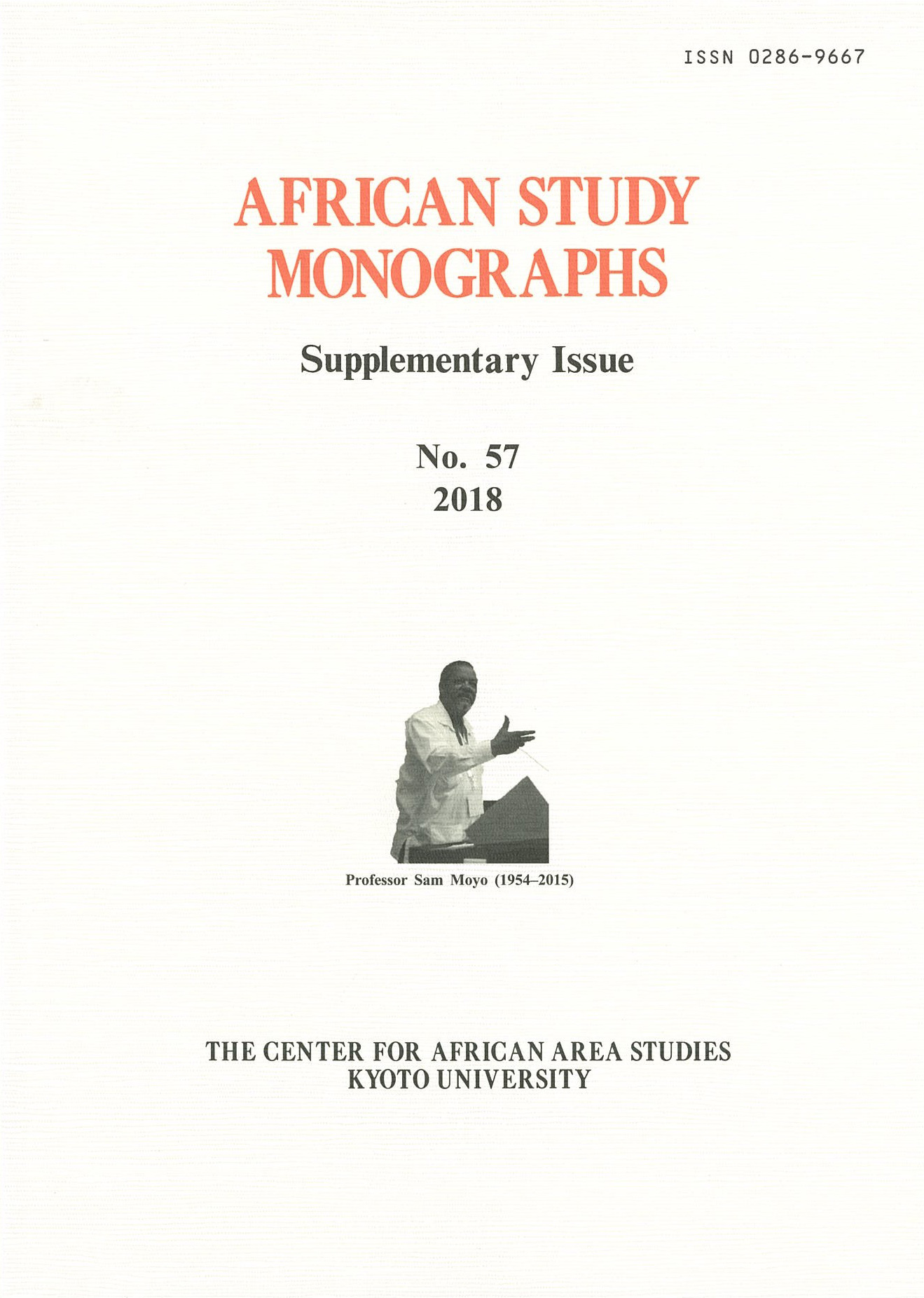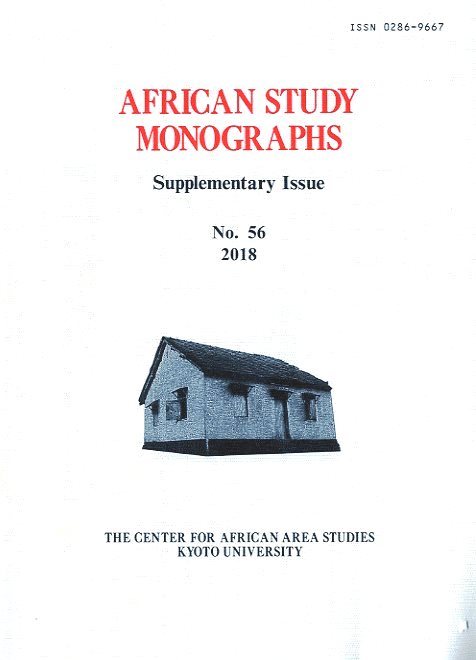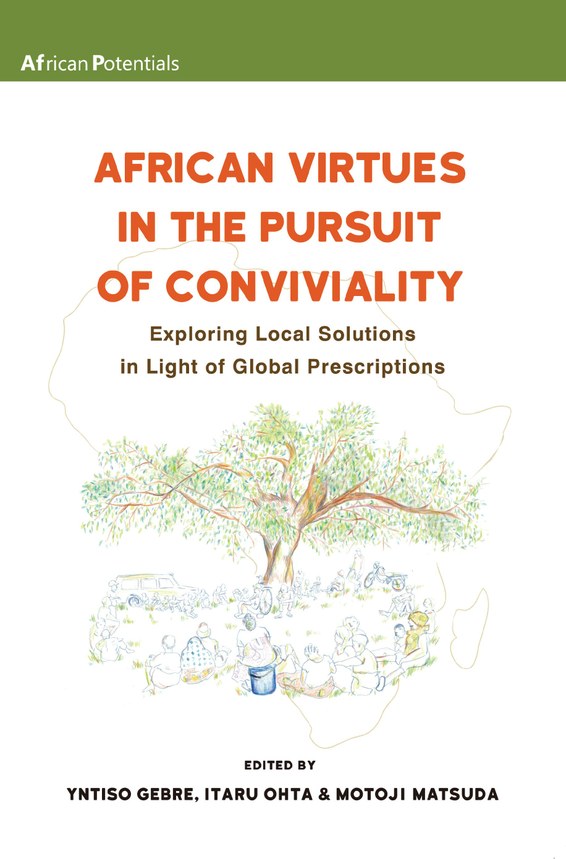[Research Team Meeting] 12th Meeting Gender and Sexuality Research Team (November 2, 2019)
Date: November 2, 2019 13:00~14:50
Venue: Middle-sized Meeting Room, 3rd floor of Inamori Foundation Memorial Hall, Kyoto University
Speaker: Keiji Fujimoto(Documentary photographer)
Title: Forget-me-not
[Research Team Meeting] 10th Meeting Gender and Sexuality Research Team (January 26, 2019)
Date: January 26, 2019 14:00~16:30
Venue: Small Meeting Room1, 3rd floor of Inamori Foundation Memorial Hall, Kyoto University
Speaker: Haruka ARII (Kyoto University)
Title: Social Ties of Family Members and Transfer of Children among the Maale Households in Southwestern Ethiopia.
[The 13th Plenary Meeting] Reconsidering the Economy of African States: From the Mixture of Informality and Universality (June 22, 2019)
Date and Time: June 22, 2019 (Saturday); 14:30 – 17:00
Venue: Large Meeting Room, 3rd Floor, Inamori Foundation Memorial Hall, Kyoto University
At the beginning, the secretariat announced the following four points.
1) Updates on outcome publication for the Accra Forum
2) Outline of Lusaka Forum
3) Timeline for publication of the project outcome
4) Upcoming activities
Following the announcement, a workshop was held. This workshop, called “Reconsidering the economy of African states: From the mixture of Informality and Universality,” was organized jointly by the Nation and Citizenship Research Team and the Development and Livelihood Research Team. After an explanation of the intentions of the workshop by Motoki TAKAHASHI (Kyoto University), who served as the MC, two members from each team delivered research presentations. Akira SATO (Institute of Developing Economies) made comments on the first two presentations while Shuichi OYAMA (Kyoto University) commented on the latter two presentations. Motoji MATSUDA, the project leader, gave overall comments after the final discussion. The names of the presenters, the titles of their works, and the outlines of their presentations are recorded below:
Speaker 1: Mitsugi ENDO (University of Tokyo)
Title: Perspectives and Research Agendas on “Informal Institutions” in Comparative Politics and African Political Studies
The field of comparative political studies has considered formal institutions foremost and has considered informal institutions only in relation to their formal counterparts. This field has focused either on how informal institutions enhance or distort formal institutions or on upon the mechanisms that underlie the emergence of informal institutions. On the other hand, the field of African political studies has considered informal institutions foremost and formal institutions by relation, giving rise to the view of statehood as weak and to the core concept extraction-based neopatrimonialism. The speaker pointed out the political phenomena which the concept of neopatrimonialism overlooks, such as the consideration of the impact of formal institutions and interrelationship between formal and informal institutions. Moreover, the speaker discussed the challenges associated with these phenomena.
Speaker 2: Wakiko OHIRA (University of Tokyo)
Title: Are Traditional Authorities “Formal” or “Informal”? Case Study of the Bunyoro Kingdom in Western Uganda
The speaker first asked a question: whether traditional authority is formal or informal. Then she elucidated that traditional authorities have a strong degree of influence over governance in rural areas in the countries with constitutions which refer to the status of traditional authority. In Uganda, although traditional authority is stipulated in the constitution, its influence is limited only to cultural aspects. The Bunyoro Kingdom of Western Uganda has been used by the government for such tasks as the implementation of governmental campaigns and policies or the advancement of land registration. However, the speaker noted that the authorities acted proactively for petroleum development, such as by attempting organizational reform and influence-peddling, for the kingdom’s benefit.
Speaker 3: Motoki TAKAHASHI (Kyoto University)
Title: Absence of the state and informality in Nairobi, Kenya: “Gifting” of sofa-making technology as formation of public good
The speaker drew on the example of sofa making and selling in the Huruma area of Nairobi, Kenya, to discuss the accumulation of public intellectual property. The number of stores making and selling sofas in the area has increased from five or six in 1982 to around 100 in recent years. With this increase, individual stores did not grow; rather development without growth in scale—i.e., horizontal expansion, where the number of people in the same business increased—was observed. The techniques of sofa making were taught among acquaintances free of charge, and such knowledge was shared as public goods. This knowledge, therefore, became informal goods in which the state did not have a role to play. In such a situation, horizontal expansion makes more sense than scaling-up. This is also true from the perspective of the three issues a company faces, as enumerated by Adam Smith: 1) problem of stocks, 2) problem of discrepancy and conflict, and 3) adaptability to unexpected situations. The speaker discussed the possibility that the free gifting of techniques, as witnessed in this case, may be a more universal act than technology transfer as carried out by the state or market.
Speaker 4: Mayu HAYAKAWA (National Museum of Ethnology)
Title: Zimbabwe’s informal economy under hyperinflation in 2008
The speaker discussed the diversified nature of universality with an example of informal economy in Zimbabwe during the hyperinflation era. In Zimbabwe, where the annual inflation rate reached approximately 231 million percent in 2008, the informal economy called, Kiyakiya, economy came to play a key role to cope with the shortage of goods and cash. The presentation introduced three features of the Kiyakiya economy. First, economic activities came to be done by foreign currencies. Second, some economic activities became phenomenally popular. These activities included a process called “burning money,” where one profits from the differences between the cash rate and the deposit/saving rate when exchanging foreign currencies into Zimbabwe Dollars and another called Bacosi, where individuals buy goods with money in deposits and sell them for cash. Third, street vendors were earning cash income everyday by buying goods with small amounts of money and selling them quickly. Each of these trade patterns focuses on a different function and use of currency. The presenter discussed that the Bacosi business strategy with its investment function and the street vendors’ economic activities, which utilize exchange function, may be regarded as a different communality than the closed communality of the formal economy.
Shinichiro Ichino / Misa Hirano-Nomoto
[The 12th Plenary Meeting] Team Leaders’ Meeting (March 9, 2019)
Date and Time: March 9, 2019; (Saturday), 15:30 – 17:00
Venue: Small Meeting Room 2, 3rd Floor, Inamori Foundation Memorial Hall, Kyoto University
This plenary meeting was organized as a team leaders’ meeting in which leaders of the seven teams, including three acting leaders, and the secretariat participated. Contents of the meeting are recorded below:
1. After an overall report on the research activities of the 2018 fiscal year was presented by the project leader, each of the seven team leaders reported on their team’s research activities.
2. The project leader, Matsuda, shared the outcome and performance of the first phase of research, then provided the outline for the publication in English of the outcome of the second phase as well as information on the scope of the first issue (10 to 15 papers; 6000 to 8000 Japanese characters), the authors whose work it would include (including two African authors), and its introductory chapter by the editor. Moreover, he referred to the possibility of publishing an additional supplementary issue of African Study Monographs.
3. Activity plan for the next fiscal year (Plenary meeting, Africa Forum, etc.) was briefed.
Shuichi Oyama
[The 10th Plenary Meeting] “For the Accra Forum 2018” (November 3, 2018)
Date and Time: November 3, 2018; (Saturday), 14:00 – 17:00
Venue: Large Meeting Room, 3rd Floor, Inamori Foundation Memorial Hall, Kyoto University
At the beginning, the secretariat announced the following five points:
1) Outline of the Africa Forum
2) Details on support for next-generation research
3) Foreign invitees to the Kyoto Symposium have been finalized
4) Activity updates (ASM special issue, World Social Science Forum, Kyoto Academic Day, etc.)
5) Upcoming activities
After the announcement, Motoji Matsuda explained the intentions of “the eighth Africa Forum (also called the Accra Forum)”, which would be held in Accra, Ghana, from December seventh to December ninth. Then, four Japanese speakers presented their research and held question and answer sessions. The names of these presenters, the titles of their works, and the outlines of their presentations are recorded below:
MC: Itaru OHTA (Kyoto University)
Speaker 1: Takuo IWATA (Ritsumeikan University)
Title: Political Satire and Comedy in Africa
The presenter reported how satire and comedy in Africa reflect and influence actual politics. Satire and comedy are “politics from the bottom” which can be found even in harsh political situations. They enable people in weaker positions in society to feel a sense of political superiority, if only fleetingly. Differences in the political situations of Benin, Togo, and Burkina Faso are reflected in each nation’s satire and comedy. The satire and comedy platform called “Republic of Gondwana” has been shared, especially in French-speaking Africa, through media and the Internet. Finally, the presenter discussed that proving causal relationship on how the satire and comedy changed the politics is challenging, but still they have some effect such as lowering awe to authority.
Speaker 2: Hiroshi SAKUMA (Tokyo University of Foreign Studies)
Title: The Potential of Debts That Cannot Be Paid
After pointing out that there are not only financial debts but also social debts, the presenter demonstrated dynamics related to social debt which cannot be explained only by financial motivation for maximizing profits with an example of his experience when he called four of his former assistants in Niamey, the capital of Niger. After the former assistants parted with him, they conveyed their strong complaints to him through third-person parties. They sought to create a situation where they could minimize their own debt while maximizing the other party’s debt to them, rather than seeking simply to maximize profit. Even financial debt, which should be precisely measurable, can be transformed into social debt, which cannot be measured or paid. He concluded that, for this reason, such debt should not be paid back in full in order to maintain relationships.
Speaker 3: Gen YAMAKOSHI (Kyoto University)
Title: Conservation of the Bush of Ghosts: Conviviality in Guinean Anthropogenic Landscape
Francis Nyamnjoh used “Palm Wine Drinkard” by Nigerian writer A. Tutuola as a metaphor of the heterogeneity of African potential. The presenter outlined the novel, focusing on its ecological description of the landscape. Based on this outline, the presenter drew on case studies he had conducted on wild chimpanzees in the forests of Guinea to give a detailed explanation of the abundant potential of man-made ecology where human livelihood and wild animals cross. Then, he suggested a way to discuss convivial African potential from an ecological perspective.
Speaker 4: Shoko YAMADA (Nagoya University)
Title: “Dignity of Labour” for African Leaders: The colonial roots of education and the pendulum between liberal and vocational education in post-independence Ghana
The presenter discussed how education policies were formed in the British Gold Coast during the interwar period and analyzed the discourse around these policies. The interwar period was a time when the demand for education in colonies rose as public investments increased. As such, during this time the education policy of the colonial authority partially reflected varied ideologies and phraseologies, picked up through discussion with missionaries, American philanthropy organizations, and academics. Among those was included the progressive education model that put emphasis on experiences, the model for freed black slaves in the US, and the public school model that valued morality and educational environment. She discussed how education policy has swung like a pendulum between liberal and vocational educational models due to the aforementioned historical development of education policies.
Gen Yamakoshi / Shuichi Oyama / Misa Hirano-Nomoto / Shinichiro Ichino
[Research Team Meeting] 11th Meeting Conflict and Conviviality Research Team (November 2, 2019)
Date: November 2, 2019 12:30-14:30
Venue: Small Meeting Room 1, 3rd floor of Inamori Foundation Memorial Hall, Kyoto University
Title:Conflict and Coexistence between Herders and Farmers in the Sahel: A Spatial Analysis
Speaker:Takuto Sakamoto (University of Tokyo)
[Research Team Meeting] 9th Meeting Education and Human Development Research Team (November 2, 2019)
Date: November 2, 2019, 12:00-14:30
Venue: Large Meeting Room, 3rd floor of Inamori Foundation Memorial Building, Kyoto University
Discussion for publication of African Potentials book series
[Research Team Meeting] 10th Meeting Conflict and Conviviality Research Team (October 12, 2019)
Date: October 12, 2019, 13:30-17:40
Venue: Common Research Room 1, Ryukoku University
Title: The ECOWAS Policy on Refugee Integration
Speaker1: Sho Tanaka (Osaka University)
Title: State Formation and Non-formation in Africa
Speaker2: Tomohiro Hosoi (Tokyo University)
[Research Team Meeting] 8th Meeting Education and Human Development Research Team (June 22, 2019)
Date: June 22, 2019 12:30〜14:30
Venue: 3rd floor of Inamori Foundation Memorial Building, Kyoto University
[Research Team Meeting] 9th Meeting Conflict and Conviviality Research Team (June 22, 2019)
Date: June 22, 2019 11:30 – 14:00
Venue: 3rd floor of Inamori Foundation Memorial Hall, Kyoto University
Title: Immigrant networks and social practices among African migrants and refugees in South Africa
Speaker: Chizuko Sato (Institute of Developing Economies)



